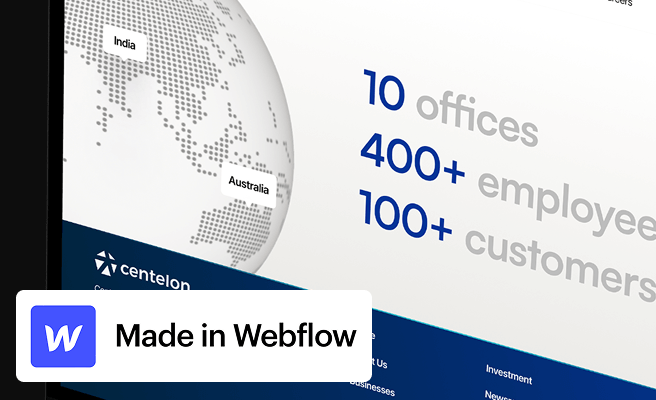Content Management System (CMS)
<p>A Content Management System (CMS) is a software application that allows users to create, edit, manage, and publish digital content without needing specialized technical knowledge. By providing an intuitive interface, a CMS makes it easier for businesses to keep their websites updated, ensuring accurate information and a seamless user experience.</p>
<p>Historically, managing website content required extensive knowledge of HTML, CSS, and other web technologies. With the advent of CMS platforms, even non-tech-savvy individuals can maintain their websites efficiently, making it essential for modern digital strategy.</p>
<p><strong>Benefits of a Content Management System</strong></p>
<p>Implementing a CMS offers several advantages:</p>
<ul>
<li><strong>Ease of Use:</strong> Most CMS platforms are designed with user-friendly interfaces, allowing users to add, modify, and delete content effortlessly.</li>
<li><strong>Collaboration:</strong> Multiple users can manage and contribute to the website simultaneously, streamlining workflow and enhancing productivity.</li>
<li><strong>SEO-Friendly:</strong> Many CMS platforms have built-in tools and plugins to help optimize content for search engines, improving website visibility.</li>
<li><strong>Scalability:</strong> As businesses grow, their digital presence can easily scale with additional content, features, and functionalities without significant overhauls.</li>
<li><strong>Customizable:</strong> Companies can tailor the CMS to their specific needs through various themes and plugins, enhancing functionality and aesthetic appeal.</li>
</ul>
<p><strong>Popular Content Management Systems</strong></p>
<p>Several CMS platforms dominate the market, each offering unique features and benefits:</p>
<ul>
<li><a href="https://wordpress.org" style="color: #2896FF; text-decoration: underline;">WordPress</a>: Known for its flexibility and extensive plugin ecosystem, WordPress powers over 40% of websites worldwide, ranging from blogs to e-commerce sites.</li>
<li><a href="https://www.joomla.org" style="color: #2896FF; text-decoration: underline;">Joomla!</a>: This CMS is favored for its robust content management capabilities and is suitable for complex websites and applications.</li>
<li><a href="https://drupal.org" style="color: #2896FF; text-decoration: underline;">Drupal</a>: Known for its flexibility and scalability, Drupal is ideal for large, complex sites requiring extensive customization and integration.</li>
<li><a href="https://webflow.com" style="color: #2896FF; text-decoration: underline;">Webflow</a>: A visual CMS that allows designers to build responsive websites visually, without writing code.</li>
</ul>
<p><strong>Case Study: Using CMS in Climate Tech</strong></p>
<p>Consider the example of a <a href="https://www.carbfix.com" style="color: #2896FF; text-decoration: underline;">carbon capture company</a> that aims to communicate its mission and progress effectively to stakeholders. By implementing a CMS like WordPress, the company can regularly update its website with new research findings, project milestones, and educational content about carbon capture technologies. This not only builds credibility but also engages the community and investors, driving support and funding for their initiatives.</p>
<p><strong>Challenges in Implementing a CMS</strong></p>
<p>While a CMS offers numerous benefits, there are challenges to consider:</p>
<ul>
<li><strong>Security:</strong> CMS platforms can be vulnerable to cyberattacks if not correctly maintained. Regular updates and security measures are essential to protect the website.</li>
<li><strong>Customization Limitations:</strong> Although highly customizable, some CMS platforms may not meet all specific business needs without extensive development work.</li>
<li><strong>Performance:</strong> With numerous plugins and customizations, a CMS can become slow and affect the website's performance. Regular optimization is necessary to maintain speed and efficiency.</li>
</ul>
<p><strong>Overcoming CMS Challenges</strong></p>
<p>To address these challenges, companies should:</p>
<ul>
<li>Regularly update the CMS and its plugins to patch security vulnerabilities.</li>
<li>Invest in quality hosting solutions that offer optimized performance for CMS-driven websites.</li>
<li>Utilize caching mechanisms and content delivery networks (CDNs) to enhance site speed and performance.</li>
<li>Partner with experienced developers or agencies for custom development needs.</li>
</ul>
<p><strong>Conclusion</strong></p>
<p>A Content Management System is a powerful tool for businesses looking to maintain a dynamic and engaging digital presence without requiring extensive technical knowledge. By leveraging a CMS, businesses can streamline content management, enhance collaboration, and improve their SEO efforts, ultimately driving growth and engagement in their digital strategies. <p>To understand the power of design across industries and sectors, view our diverse portfolio of works. <a href="https://www.whatifdesign.co/work" style="color:#2896FF; text-decoration:underline;">View our portfolio</a>.</p>

Let's scale your impact with great design.
Free consultation, no sales pitch
Thank you! Your submission has been received!
Oops! Something went wrong while submitting the form.
Let’s talk
Nothing great is built alone.
Let’s connect about your vision, our work and how we can collaborate.
Get in touch

